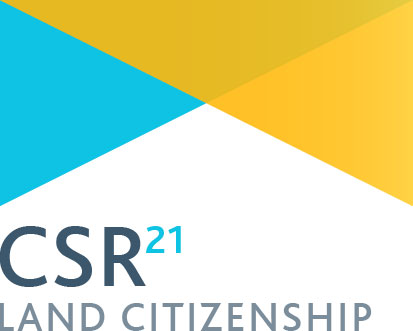
Listen Up Indaba! Time for a 'Bull Market' in CSR
Resource curse, revenue and taxation issues have hit the headlines over the weekend with a spate of articles in various papers - coinciding with the start of the world’s largest mining conference, Indaba – that highlight many of the problems surrounding resource extraction.
The guardian published an extended report of life in a Ghanaian town after oil was discovered offshore, as well as a piece on endemic tax avoidance in the Democratic Republic of Congo. And Oxfam’s Keith Slack, writing for Reuters, presented something of a manifesto before he participates in a panel at Indaba.
The ambiguous tone of all three articles reflect what is an existentially confusing time for the industry: post boom and trying to connect with a stubbornly suspicious world, the importance of the resources they extract is not in doubt; but within the context of environmental degradation and increased political ‘curiosity’, companies are unsure of how to behave, and there are large camps on both polarities that either berate or acclaim the industry’s conduct.
The resource curse is one such phenomenon touted by the naysaying camp: an economic theory that claims the transformations brought about by a sudden boom in resource exportation has negative socio-economic consequences on a micro or macro scale (or both). The Guardian piece shows how higher prices and lower revenues than expected have left some disillusioned with natural resource extraction’s development capacity.
Some dispute the importance or existence of the resource curse, but the bugbears of transparency and corruption seem to be issues that all agree are very real and all too prominent. An unpublished report regarding tax avoidance in DRC, says the Guardian, reveals the scale of lost revenues from shady accountancy practices and illegal measures in the mining industry:
“Democratic Republic of the Congo (DRC) is owed an estimated $3.7bn (£2.2bn) in unpaid customs duties and fines by companies operating in its copper-rich Katanga province between 2008 and 2013”.
Keith Slack’s Reuters piece makes some interesting additions to the devilish duo of transparency and corruption. Notably, improved CSR and contract renegotiations. Picking up on Areva’s controversial operations in Niger as an example, Slack notes “the continent is riddled with woefully bad deals negotiated between mining companies and governments who either didn’t know any better or didn’t care”.
‘Asymmetric information’ is a real problem in free markets: with those in the know, in the driving seat. Perfectly legal contracts and mining rights are granted that can easily cede any meaningful amount of revenue capture if a government is not aware of the value of what they are giving away.
Speaking to Ann McKechin - Labour MP for the UK – last week, she noted how good governance examples can be found in places such as Botswana, where the government sought independent valuators of their diamonds back in the 1950s. The knowledge gained from this allowed them to strike a fair deal with diamond producers, De Beers, ensuring Botswana received proper income from their minerals: a move which has visibly paid dividends.
And Slack’s CSR message is simple: improved community relations and dialogue leads to less conflict, which leads to less human rights abuses. Highlighting the ‘shoddy’ resettlements of communities by Rio Tinto and Vale in Mozambique last year, public sentiment is shaped by how industry goliaths treat local communities, which is too often less than adequate.
Slack declares that few people will attend the CSR discussions at Indaba, and from our own conference wisdom, this is usually true. Nevertheless, the numbers of industry figures becoming as curious about the resource curse as the London Metal Exchange is growing: is it time for a ‘bull market’ in CSR? Could a social transformation in the extractive indsutries help faciliate a return to growth and liquiduty? With an increase in CSR initiatives from both civil society and government, the signs are there, but will they get heard at Indaba?





